Review: A NUMBER at the Bridge Theatre
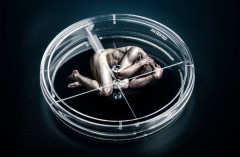 The play, the playwright, the players and the director, are all possessed of proven pedigrees. So why doesn’t this re-imagining of Caryl Churchill’s groundbreaking 2002 exposé of cloning, feel more substantial and relevant?
The play, the playwright, the players and the director, are all possessed of proven pedigrees. So why doesn’t this re-imagining of Caryl Churchill’s groundbreaking 2002 exposé of cloning, feel more substantial and relevant?
Firstly, a history lesson: For the majority of people growing-up after the war, cloning would have been a relatively unknown scientific term, (or considered a dark secret and something to do with the Nazi power grab). As the term entered the common lexicon, it increasingly appeared in sci-fi programmes like Dr Who, usually involving some sort of unwelcome planetary invasion force.
Whizz forward a generation to 1978 and Louise Brown became the first human born by IVF, earning the dubious mantle of The World’s First Test-Tube Baby. Another 18 year pass by and in 1996, Scottish scientists spark worldwide headlines (and ethical debates) by successfully cloning the first adult mammal - Dolly the Sheep.
So by 2002, rumours and headlines involving anything and everything to do with human embryos abounded and confounded, shocked and amazed in equal measure. Would we be able to select the sex of our babies, identify abnormalities in foetuses, even eradicate the ‘homosexual gene’? How pertinent Ms Churchill’s play seemed 18 years ago when it was launched on the avant garde patrons of The Royal Court.
Unfortunately the uncomfortable, constantly overlapping dialogue, between a man and his son (and later, two other cloned versions) becomes something of a marathon of focus and attention for the audience, as unpleasant little details are gradually and grudgingly revealed in the exchanges. Essentially, after the suicide of his wife, a pitiful angry man craves the chance to try and make a better go of fatherhood the second time around, by putting his emotionally disturbed son into care and then bringing-up a happier, clone version. Of course, humans aren’t merely the sum of their flesh and neurons, so things don’t go quite to plan and everyone feels bereft and angry by the end, as you might imagine.
The problem, is that despite the superb on-stage efforts of both Roger Allam as Salter (the father) and Colin Morgan (the various off-spring), to reveal depth of character through their reactions to the very real ethical conundrum they find themselves faced with, the subject is old news. We live in an age when Californian biologists working with their Chinese counterparts have successfully injected human stem cells into monkey embryos with the apparent aim of using them a organ growers, so the play’s premise and narrative driver, has already been surpassed in the Frankenstein stakes.
Latest News
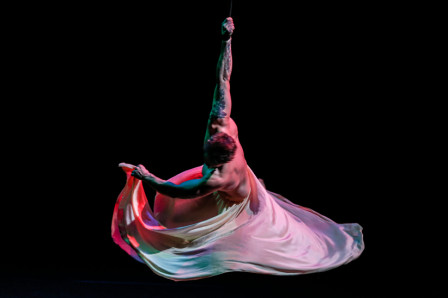
 Review: TUTU at Sadler’s Wells East
12 February 2026 at 08:52
Review: TUTU at Sadler’s Wells East
12 February 2026 at 08:52
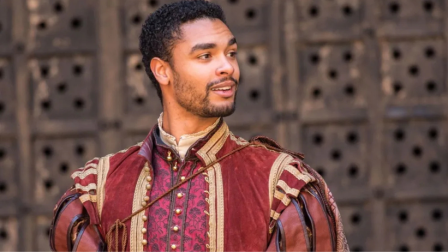
 Is The Great Gatsby, starring Regé-Jean Page, heading to the West End?
11 February 2026 at 15:40
Is The Great Gatsby, starring Regé-Jean Page, heading to the West End?
11 February 2026 at 15:40
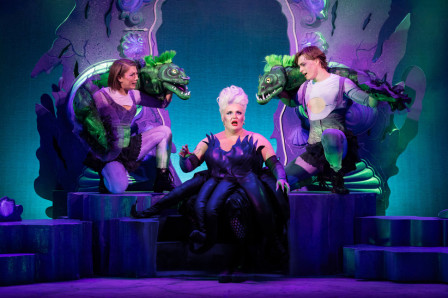
 Production photos of UNFORTUNATE: THE UNTOLD STORY OF THE SEA WITCH released
11 February 2026 at 15:14
Production photos of UNFORTUNATE: THE UNTOLD STORY OF THE SEA WITCH released
11 February 2026 at 15:14
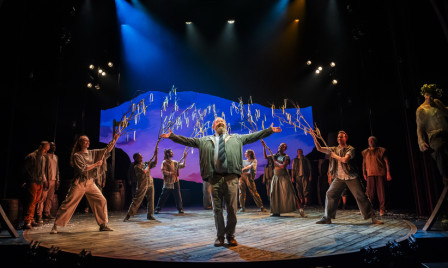
 Review Round-Up: THE UNLIKELY PILGRIMAGE OF HAROLD FRY at the Theatre Royal Haymarket
11 February 2026 at 14:19
Review Round-Up: THE UNLIKELY PILGRIMAGE OF HAROLD FRY at the Theatre Royal Haymarket
11 February 2026 at 14:19